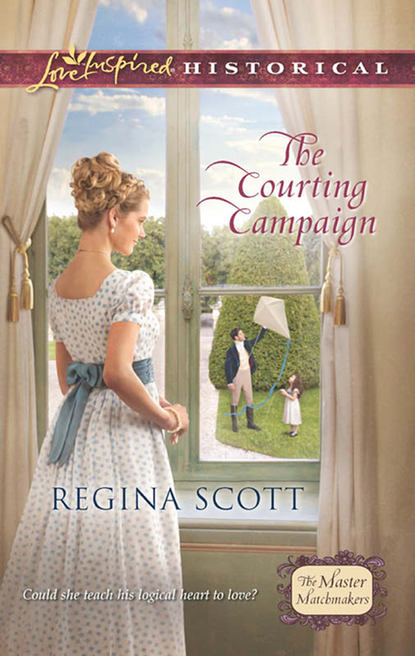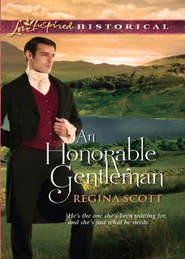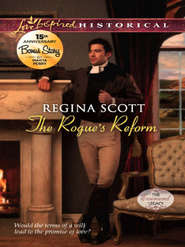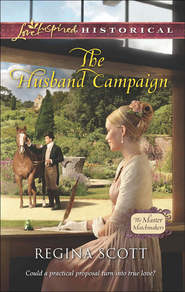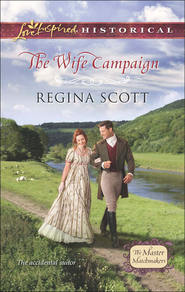По всем вопросам обращайтесь на: info@litportal.ru
(©) 2003-2024.
✖
The Courting Campaign
Настройки чтения
Размер шрифта
Высота строк
Поля
Emma put the question to the girl as she tucked her into the child-sized poster bed in her bedchamber off the main room of the nursery suite.
Alice snuggled deeper under the goose-down comforter. “She is unhappy because she is an orphan.”
The answer cut into Emma. “Not all orphans are unhappy. Some know the Lord has better plans for them.”
Alice sighed, closing her eyes. “That’s good. But I think Lady Chamomile would be happier if we could find her a papa.”
Emma stroked Alice’s silky hair back from her face. “I’ll do all I can, Alice. I promise.”
She started the very next day at Sunday services. Dovecote Dale was served by a fine stone church in the center of the valley. Though the Duke of Bellington had responsibility for it, all four of the wealthy families—the Rotherfords at the Grange, Lord Hascot at Hollyoak Farm, the Earl of Danning at Fern Lodge, and the Duke of Bellington—had endowed gifts so that the little country chapel lacked for nothing. The building and bell tower had a fresh coat of white paint below a gilded steeple. The stained-glass windows glittered in the summer sun.
Inside, carved oak seats marched along the center aisle, and banners in rich silk draped the walls leading up to the alabaster cross. With his flyaway hair and silver-rimmed spectacles, the Reverend Mr. Battersea always seemed in awe of the place, honored to be given charge of their souls.
With the servants from the four estates, Emma listened with her usual interest to the readings and the sermon. But she was careful to be the first one on her feet and the last one to sit when the service called for the congregation to change positions. She wanted to take advantage of every opportunity to observe Sir Nicholas near the front.
From his absorption in his work to the way the staff seemed to revere him, she’d assumed he was a man like her foster father, though certainly not with Samuel Fredericks’s ability to denigrate those he saw as lesser beings. She was fairly sure her foster father was in a class by himself in that area. Mr. Fredericks attended church in his finest clothes, arriving in his best carriage. He worshipped with head high and shoulders broad, as if he wanted everyone around him to notice or he saw himself as a peer of the Lord instead of a humble penitent.
Sir Nicholas was different. Oh, his clothes were of fine wool and soft linen, but they were a bit on the rumpled side, and his cravat was more simply tied than that of Mr. Hennessy, the butler from the Earl of Danning’s lodge. Though she never saw Sir Nicholas pick up the Book of Common Prayer to follow the service, his lips seemed to be moving in the appropriate responses. Yet she detected little change in him, as if he were merely doing what he’d done a dozen times before.
Lord, what am I to make of this man? Last night I thought I saw a glimmer of a good father. But if he cannot give his heart to You, how can he give it to his daughter?
She received the beginning of an answer that afternoon, at the weekly Conclave.
Once a month, each member of the household received a Sunday afternoon off. She and Mrs. Jennings had the same day, and the cook had quickly introduced Emma to the place the servants gathered at the Dovecote Inn, not far from the church. The inn was a rough-stone building with flower boxes under the windows. More boxes under the overhanging eaves made homes for the doves for which the area was famous. On the upper floor lay a large private dining room, and it was there every Sunday afternoon that some collection of the local servants met to celebrate or commiserate their lots.
Some of the other houses, Emma knew, were more generous, so a few of the Conclave attendees like Mr. Hennessy were there nearly every Sunday. Others, like her, came once a month. Someone usually brought the largess of a master’s table—today it was fresh apricots from Lord Hascot’s orchard. And there was always tea and talk around the polished wood table.
The last time Emma had attended she’d brought her knitting and sat quietly on one of the tall upholstered chairs by the window, listening to the talk around her and the coos of the doves outside. She’d noticed that the unmarried servants tended to flirt with each other. She paid them no mind, as they didn’t seem to be serious.
Today, she had another purpose anyway, so she chose a seat near the stone hearth and confessed her goal to Mrs. Jennings.
“God bless you, Miss Pyrmont,” the cook said, face brightening. “You can count on my help—anything you want.”
“I’m trying to think of an activity Sir Nicholas could do with Alice,” Emma explained, edging forward on her seat as the other servants milled around them. “Something that might encourage him to forget his work for a time. You’ve known him for years, haven’t you? What did he like to do as a child?”
“Read,” Mrs. Jennings answered promptly, brushing back her skirts from the glowing fire. “Everything and anything. He knew the Latin names for things by the time he was Miss Alice’s age, and he knew most of the Gospels by heart by the time he was eight. He liked Luke the best. Said it had more facts.”
Of course. She’d suspected he set a great store by facts. And perhaps that was why he’d felt no need to use the Book of Common Prayer. He might well have memorized that, too! She studied the apricot she’d plucked from the bowl. “Did he have any favorite toys? Good friends?”
“Any so-called friends he found at Eton and lost in London,” the cook replied tartly. “But I’ll not gossip.”
“I will,” Dorcus said, ambling closer. The maid also had the afternoon off, but Emma had noticed she’d spent her time batting her eyes at a strapping footman from the duke’s household. “You should know what’s what, Miss Pyrmont,” she said now, pulling up a chair to sit beside Emma and the cook, “especially if you mean to become mistress of the Grange.”
“I have no such intentions,” Emma informed her, biting into her apricot to forestall additional comment. As if she’d ever consider marrying a man like Sir Nicholas! Her ideal husband would value his family, put their needs first.
“The more fool you, then,” Dorcus replied. “Being called a cheat never colored a fellow’s money.”
“That’s quite enough from you,” Mrs. Jennings declared. “Sir Nicholas is no cheat. If he says he made the right calculations, then he did.”
Dorcus rolled her eyes, but she rose and returned to her pursuit of the footman.
The cook leaned closer to Emma and lowered her voice. The warm scent of vanilla washed over Emma. “Never you mind her. All you need to know is that some of those philosophers questioned Sir Nicholas’s work. He left London because of it and gave himself completely over to his studies. All the more reason for you to carry on with your plan. And as for toys, he was quite partial to kites. Seems he’d read about some experiment by an American gentleman and was keen to repeat it.”
Kites, eh? Oh, for a windy day! But lacking that, surely there was something she could use from Mrs. Jennings’s stories.
Emma’s mind began to conjure up any number of activities designed to woo Sir Nicholas away from his work. She would have loved to speak further with the cook, but she could see Dorcus casting them looks. Best not to fan that flame. Emma thanked Mrs. Jennings and made polite conversation with the other servants until it was time to return to the Grange.
So, Sir Nicholas had studied from an early age, she thought as she walked up the lane from the village, the sun warm on her dark wool gown. Again, she wasn’t surprised. Indeed, the only surprising thing about her discussion with Mrs. Jennings was the reason Sir Nicholas found himself rusticating in Dovecote Dale.
His scientific calculations had obviously incensed his fellow natural philosophers to the point that he no longer felt comfortable among them. He must have made a tremendous mistake indeed. In her experience, it took a great deal to convince learned men to castigate their colleagues. Certainly she’d wished someone in authority to berate her foster father for his inhumane practices. But it seemed experimenting on children did not rise to the level of offense among the Royal Society.
There, she was starting to sound bitter again. She could feel her emotions like acid on the back of her tongue. One of the reasons she’d wanted to escape London was to leave her past behind, before those emotions poisoned her outlook, her hopes and her future. She was not about to give in to them now.
Help me, Lord. I know You must have sent me here for a reason. Show me the good I can do. Help me be a blessing.
Her own blessing was waiting for her on her return. In fact, Emma heard laughter before she reached the nursery.
As she paused in the doorway, she saw that Ivy was chasing the little girl around the table, her blue skirts flapping. Alice giggled each time she managed to evade capture. Ivy stopped immediately on seeing Emma, tugging down her apron and adjusting her lace-edged cap.
“Begging your pardon, miss,” she said, with a quick curtsey to Emma, “but someone would refuse a tickle.” She glanced pointedly at Alice, who covered her mouth with both hands. The giggle still slipped out.
Emma ventured in. “Tickles before dinner? What am I to do with the pair of you?” She clucked her tongue with a smile.
Alice dropped her hands and hurried to the table, slippers skimming the rosy carpet. “Do you wish a tickle, too, Nanny?”
Now Ivy giggled before a look from Emma sent her hurrying out to help Mrs. Jennings finish the Sunday dinner.
“Not at the moment,” Emma assured her charge. “And I’m guessing the rest of the household is not up to laughter either on a quiet Sunday evening.”
Alice climbed up into her chair and waited for Emma to push her up to the table. “I didn’t mean to make so much noise,” she said, face scrunching. “I know I shouldn’t bother Auntie or Papa.”
All at once the ideas that had been germinating in Emma’s mind sprouted into bloom. Her smile grew.
“Not at all, Alice,” she said, pushing the girl up to the table and going to her own seat to wait for the dinner tray to arrive. “I believe your father needs something to wake him up. And I know just how we can go about it.”
* * *
The next morning, Nick scowled at the scrap of wool sitting on his worktable. Two days ago the stuff had burst into flame immediately; his laboratory still gave off the grit of charcoal from the smoke even though he’d spent Sunday afternoon airing the place and setting up his next experiment. Today, under a different chemical treatment, the material would not so much as smolder. That didn’t bode well for success.
It had sounded like a relatively simple problem to solve. Coal miners required light to do their jobs deep underground. Coal mines gave off firedamp, a noxious gas that appeared to be a form of the swamp gases Volta had studied. Combine a flame with a patch of the gas, and the resulting explosion could kill dozens. The Fatfield Mine in Durham had lost thirty-two men and boys just two years ago after their candles ignited firedamp.
Still, the solution eluded many. Dr. William Clanny had developed a method of using water to force the air into a lamp, protecting the flame from the gas. While ingenious, the device was impractical to carry into the mines. Sir Humphry Davy, the chemist, was approaching the matter from a heating perspective. An enginewright named George Stephenson thought burnt air was the key to separating the flame from the firedamp.
Nick had been working with a team of natural philosophers led by Samuel Fredericks to consider the properties of the materials that could compose a lamp. They had thought they’d come across a likely combination of candidates, but their first attempt to test the lamp had resulted in the deaths of three men and a boy a little older than Alice.
The muscles in his hand were tightening; he shook them out. Obviously this composition would not meet his needs. He required something that would burn in the presence of oxygen but not firedamp, not the other way around. He’d have to start over.
He rocked back on his stool, took a deep breath. He was certain the secret lay in the composition of the lamp’s wick. He’d already had a glassblower create the appropriate chimney to partially isolate the wick from the gas and the blacksmith create the brass housing for the fuel. He’d tried wool, cotton and linen and various combinations of fuel, to no avail. One attempt was too flammable. Another, like this, wasn’t flammable enough. There was no easy in between.





